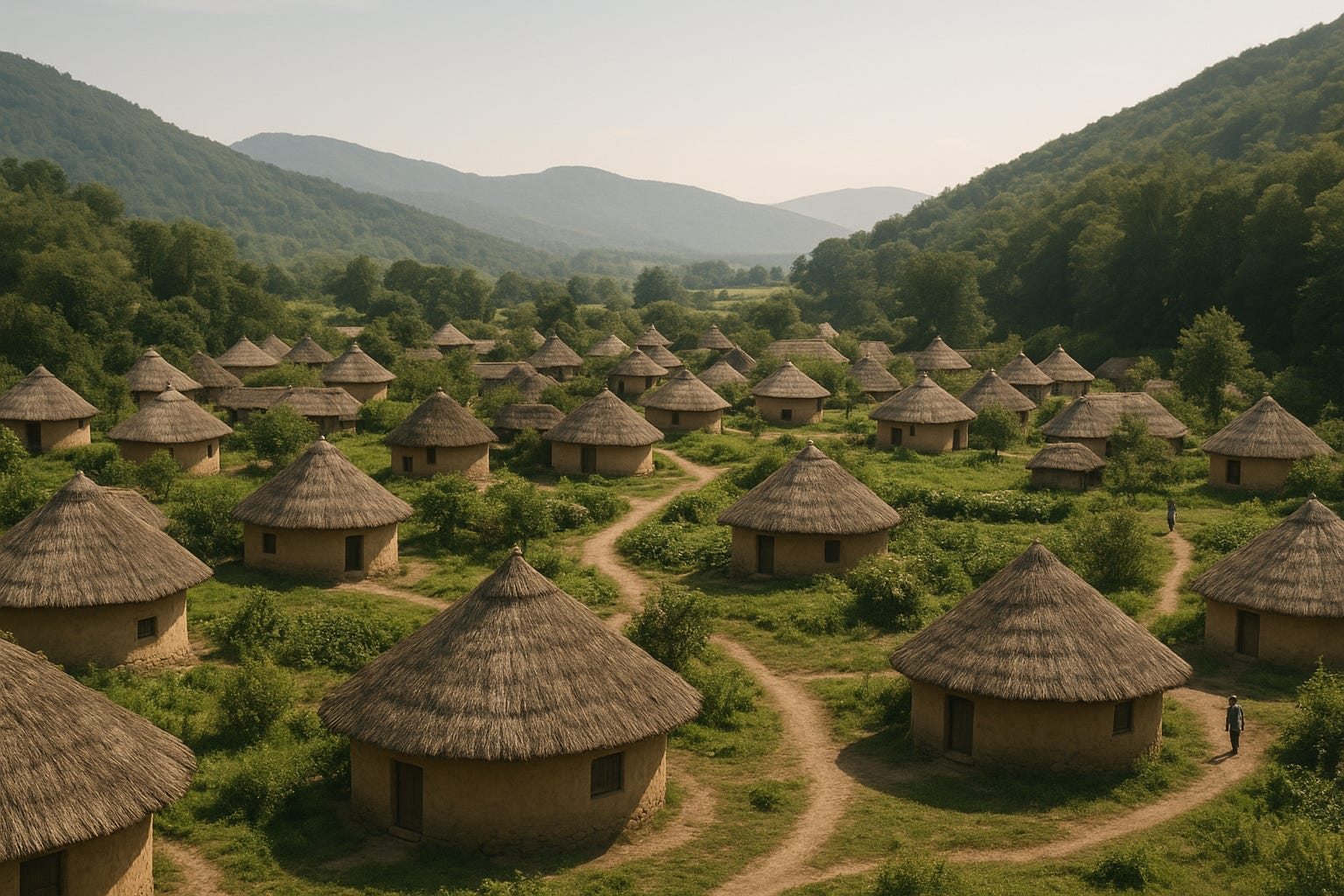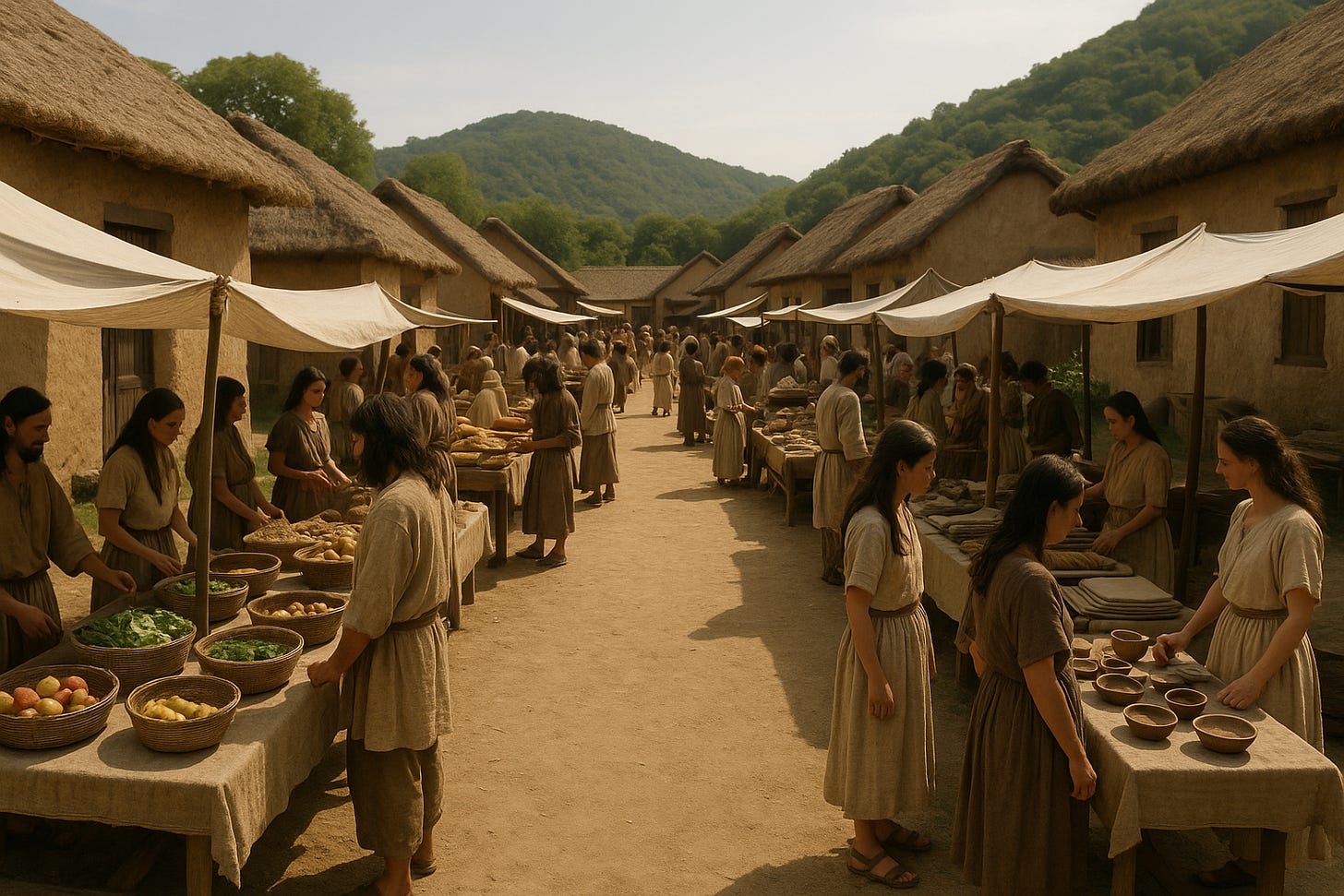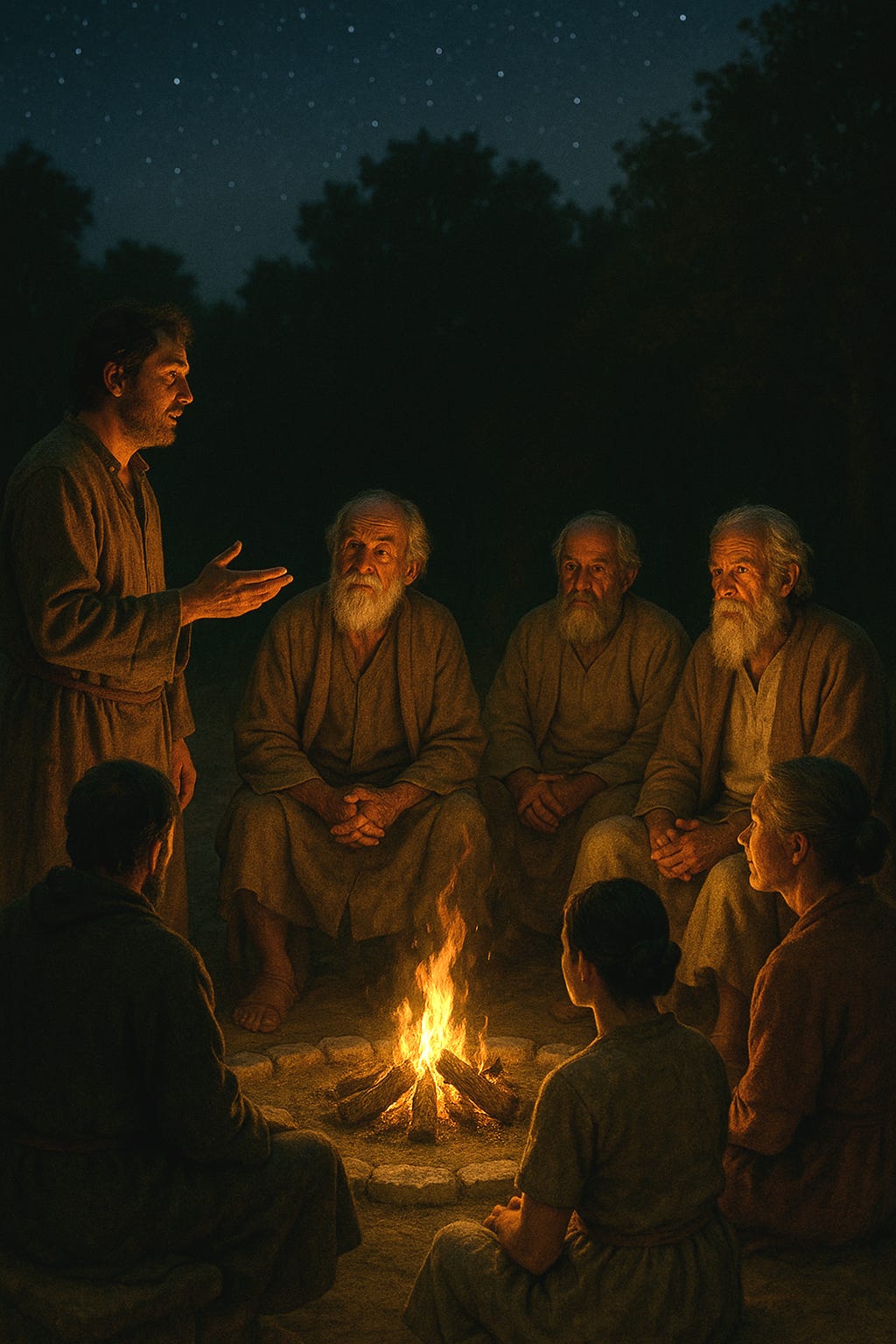The Village of I
In the valley where rivers braided themselves like hair, there stood a village unlike any other. Its people had agreed, long ago, to speak only in the first person. No matter who was addressed, no matter who was remembered, all was spoken as I.
Morning began with the bells. I awoke. I opened the shutters. I stretched and felt the sun on my skin. Across the lane, I awoke also, and I stretched, and I felt the same sun. All doors opened as one, all voices joined the same pronoun.
At the fountain, I filled the bucket. I handed the water to myself. I thanked me. I received my thanks. Children played, calling out, I chase I, I catch I, I laugh with I. Laughter fell like rain from a single sky.
There were quarrels too. I shouted at I for trampling the garden. I wept because I was harsh. I forgave myself. I accepted forgiveness. The conflict dissolved before it had taken shape, for how could I strike I without striking my own heart?
At twilight, when the sheep returned and the fires were lit, I told a story by the hearth. I listened with rapt attention. I marveled at my own words. I carried them into dreams.
No one in the village was alone, and yet no one was other. To live there was to taste the deep strangeness of unity. To say I was to speak the whole world into a single mouth.
Travelers passed through sometimes, puzzled, even frightened. How do you know who you mean? they asked. The villagers only smiled: I know because I am. And because I am, you are also I.
So it was said that the Village of I never quarreled long, never forgot its dead, and never feared its future. For whatever befell one, befell all. And whatever voice rose, the chorus answered with the same word: I.
Notes of a Traveler Passing Through the Village of I
I came into the valley at dusk, when the fires of the houses were being kindled. What first startled me was not the architecture nor the customs but the sound: a hundred voices speaking, yet all saying the same word — I.
At the market, I watched the baker hand a loaf across the counter.
“I baked this for I,” said one.
“I thank I,” replied the other.
Neither seemed confused, neither demanded clarification. The loaf changed hands as naturally as water flows downhill.
Children darted between the stalls, shouting in a chorus: I tag I! I run from I! I catch I! Each call was met with more laughter than quarrel. In their play, I could not tell pursuer from pursued. And yet the game worked — the chase unfolded with perfect rhythm, as though no distinction were needed.
In the square, I saw two men arguing over a sheep. “I fed this sheep, therefore it is mine,” said one. “I tended this sheep, therefore it is mine,” said the other. Voices rose, but instead of hardening into division, something softened. After a silence, one of them said: “Then I will share with I.” The other answered: “Yes, I share with I.” And the quarrel was ended, dissolved into agreement.
What struck me most was how little distance seemed to exist between them. The word I erased the line that usually runs sharp as a blade between person and person. In its place was a web of reflections, a mirror turned endlessly upon itself. They lived as though each face were their own face, each act their own act.
And yet — it was not uniformity. Each had a different gait, a different voice, a different craft. But when they spoke, those differences folded back into one pronoun. The diversity of their lives was contained in the unity of their speech.
I began to realize: their language was not clumsy, nor vague, but purposeful. To say I of all beings was not to confuse them but to remember something deeper — that what I do to you, I do to me; that what happens to one is borne by all.
As I left the valley, the chorus followed me. “I walk with I. I bless I. I remember I.” Their voices wove into the twilight, and I felt them echoing in my own chest. For days afterward, I found myself slipping, saying I when I meant you or they. And I wondered: had I truly left the village, or had I merely carried it within me?
Fragment from the Ash-Circle Gatherings: On the Village of I
The one who had traveled far sat among us, the fire low, the moss fragrant with smoke. The circle leaned in to hear the account of the valley where every voice spoke only I.
“I saw a people who no longer said you or they. They said only I. The baker to the buyer, the child to the playmate, the mourner to the beloved dead. All was I. And yet they were not confused. Their lives unfolded smoothly, with fewer quarrels than our own. It was as though they had remembered something we have forgotten.”
A silence grew. Then another voice spoke from the shadows.
“Perhaps we are, in truth, a single being. Perhaps the illusion of separation began when words split us apart. The mouth divided the world: I here, you there. And ever since, we have struggled to stitch the cut.”
Another asked, “Do the creatures of the forest know this already? When the wolves howl, when the geese wheel as one body, when the ants trail and scatter and regather - do they speak in I without needing to name it? Perhaps they live within the great pronoun still, unbroken by the partitions of language.”
A third said, “Then what is our task? To repair what speech has fractured? To melt back into the great I? Or was the split itself a necessary gift — so that we might see the world in facets, like a jewel, not just as one smooth stone?”
The circle murmured. Some nodded, seeing wisdom in the fracture. Others shook their heads, longing for the lost wholeness.
The elder then raised a hand.
“If this separation is a wound, perhaps we heal it not by abolishing our words, but by learning to hear through them. To say I and know that I mean myself, and yet also you, and yet also the river, the bird, the stars. To let each pronoun be transparent, a window through which the great unity shines.”
And so it was left unresolved. Was language the prison or the path? Was the Village of I a paradise to restore, or a mirror to remind us that the split is never final?
The Elder pondered and then decided to send an envoy to the Village of I to get a more detailed report on the subject of I among the villagers.
The fire burned low. Each departed with the echo of a single word in the heart: I.







I think I will reserve my comment for next week's Root Tongue Dust Letters. This presents a pretty complex conundrum with many facets, or only one. I like where I see it going.
But for now, it reminds me of an anthem for a narcissistic politician, my husband and I sing occasionally: Guess who?
"I am so beautiful, to me.
I am so beautiful, to me,
Can't you see?
I'm everything I hope for,
I'm everything I need,
I am so beautiful, to me."